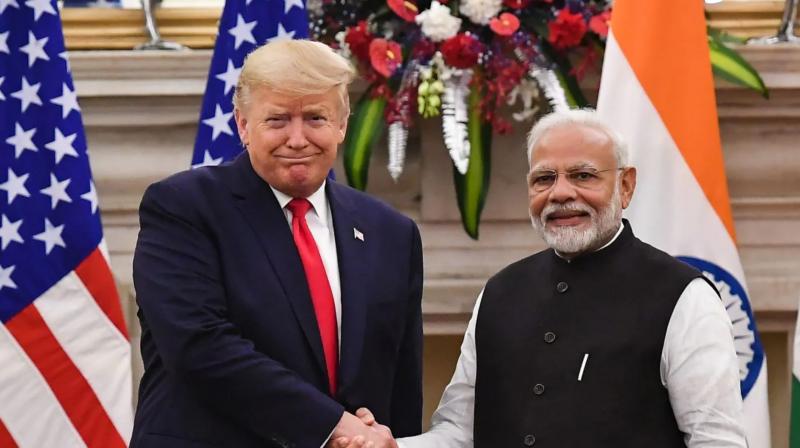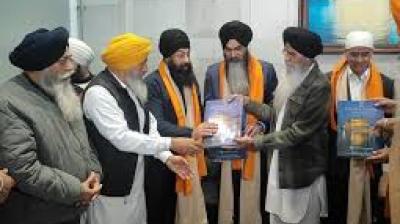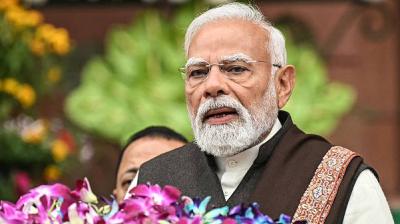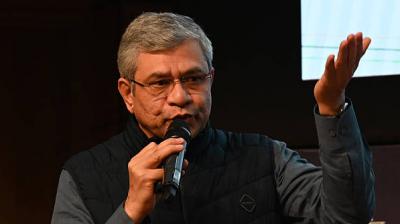
Addressing the issue of trade disparities, Trump highlighted what he called unfair tariff practices by India.
Former U.S. President Donald Trump recently described Indian Prime Minister Narendra Modi as a "great friend" while announcing a new set of tariffs on India. In his speech, Trump revealed that the U.S. would now impose "discounted reciprocal tariffs" of 26% on Indian imports, citing trade imbalances.
Trump’s Statement on India’s Trade Policies
Addressing the issue of trade disparities, Trump highlighted what he called unfair tariff practices by India. Holding a chart listing tariff charges by various countries, he said:
India is very, very tough. The Prime Minister just left—he's a great friend of mine. But I told him, ‘You're my friend, but you're not treating us right.’ They charge us 52%, while we've charged them almost nothing for years."
He further recalled his administration’s aggressive stance on China’s tariffs, emphasizing that similar measures were now being taken against India to address what he sees as long-standing trade imbalances.
Trump and Modi’s Recent Meeting
The statement comes shortly after PM Modi’s visit to Washington, D.C., in February, which was one of his first high-profile international engagements following Trump’s second term in office. During a joint press conference on February 13, Trump reiterated that India had been tough on tariffs, acknowledging their strong trade policies while asserting the need for fairer trade agreements.
Trade Deficit and Negotiations
Citing a $100 billion U.S. trade deficit with India, Trump announced that he and Modi had agreed to initiate discussions to rectify what he described as "long-running disparities."He stated: "We want to sign an agreement that ensures a level playing field. It’s something we are entitled to, and in fairness, Modi also agrees, so we’re going to work on it very hard."
Defending the Tariff Decision
Defending his tariff imposition, Trump emphasized that the U.S. had been "too kind" to its trade partners and that the new rates would only be "half of what these countries charge the U.S."
As the global trade landscape continues to shift, these new policies are expected to influence the U.S.- India economic relationship, potentially leading to further negotiations in the near future.














